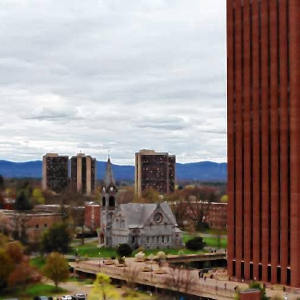Franklin County, North Quabbin officials mulling best uses for opioid settlement money
| Published: 06-23-2022 5:04 PM |
The Franklin Regional Council of Governments is in the early stages of planning regional programs that could be funded using the roughly $2.16 million Franklin County municipalities are set to receive from 2022 through 2038 as part of a $26 billion settlement with opioid manufacturers and distributors.
Each town in the county had the opportunity to apply to receive funding from the opioid settlement, explained FRCOG Director of Community Services Phoebe Walker.
“Some towns went through the process to apply, but a bunch of towns did not,” Walker said.
The settlement, announced by state Attorney General Maura Healey on July 21, 2021, set Massachusetts up to receive more than $500 million, according to a statement from Healey’s office. The agreement was made with Cardinal, McKesson and AmerisourceBergen — the nation’s largest drug distributors — and Johnson & Johnson, which manufactured and marketed opioids. The agreement, according to Healey’s office, would resolve investigations and litigation over the companies’ roles in creating and fueling the opioid epidemic.
The three distributors will collectively pay up to $21 billion over 18 years, while Johnson & Johnson will pay up to $5 billion over nine years. Up to $3.7 billion will be paid during the first three years. In addition to Massachusetts, state negotiations were led by the attorneys general from California, Colorado, Connecticut, Delaware, Florida, Georgia, Louisiana, North Carolina, New York, Ohio, Pennsylvania, Tennessee and Texas.
Since the state announced the amount each town will receive, many towns have discussed regionally pooling their money through FRCOG to have a larger effect. In the county, some towns will receive as little as $216 in Monroe and as much as $950,979 in Greenfield over the course of the 16-year period. The amount received is proportional to the population.
“I hope FRCOG will come forward with an initiative to allow the community to pool their money to make a meaningful program,” Buckland Town Administrator Heather Butler said during a Selectboard meeting this week.
FRCOG public health nurses will meet with the Opioid Task Force of Franklin County and the North Quabbin Region on Tuesday, June 28, to start planning for the county.
Article continues after...
Yesterday's Most Read Articles
“We are fortunate that a culture of collaboration exists in our region,” commented Debra McLaughlin, coordinator of the Opioid Task Force. “There are many regional responses that already exist.”
According to McLaughlin, the Opioid Task Force will provide resources to help municipalities make fully informed decisions about what to do with their settlement money. However, the Opioid Task Force will not sway towns to make certain decisions.
“All communities need to consider how we can best can support people,” she said, “when and where they need help the most, and how to do work on a given timeline.”
While each town receives a small amount of money, programs can be created with the pooling of resources. Walker named supporting families impacted by addiction, opioid use prevention programs, support for EMS staff and greater access to recovery support services among the options FRCOG could pursue with the settlement money.
“There is a lot we can do with Narcan access for a relatively small amount of money,” Walker added. Naloxone, the generic term for Narcan, is a medicine that rapidly reverses an opioid overdose.
This consideration of uses for the opioid settlement money comes less than two months after the U.S. Centers for Disease Control and Prevention released data showing that 2021 marked the worst year for fatal opioid overdoses recorded, with more than 107,000 deaths across the country and 2,500 deaths in the state of Massachusetts.
Franklin County and Athol were not spared the brunt of it, as 44 people in the region experienced unintentional fatal overdoses in 2021, a 52% increase from 2020 and a 132% increase from 2019, according to the Northwestern District Attorney’s Office. Data from the Opioid Task Force shows non-fatal overdoses have also increased, with nearly 280 non-fatal overdoses in 2020 compared to 209 in 2019.
“There were lives lost and we cannot replace that,” McLaughlin said. “But now we can invest in opportunities to prevent this from happening to someone else.”
Contact Bella Levavi at blevavi@recorder.com or 413-930-4579.

 Frontier Regional School students appeal to lower voting age
Frontier Regional School students appeal to lower voting age Police report details grisly crime scene in Greenfield
Police report details grisly crime scene in Greenfield Goddard finds ‘best location’ in Shelburne Falls with new Watermark Gallery space
Goddard finds ‘best location’ in Shelburne Falls with new Watermark Gallery space Federal probe targets UMass response to anti-Arab incidents
Federal probe targets UMass response to anti-Arab incidents
